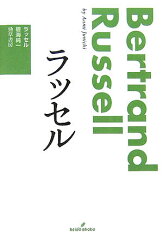バートランド・ラッセル『人間の知識-その範囲と限界』序論 - 冒頭
* 出典:バートランド・ラッセル(著),鎮目恭夫(訳)『人間の知識-その範囲と限界 (みすず書房,1960年2月(上巻)&5月(下巻)。上巻=365pp.;下巻=412pp.)* 原著:Human Knowledge, its scope and limits, 1948
序論・冒頭 |
Introduction | |||
|
(上の挿絵:1982年9月5日開催の第32回「ラッセルを読む会」案内状より)
カント以来,いや,おそらくバークリー以来といった方が適切だろうが,哲学者たちの間に,世界の記述が,人間の知識の本性に由来することがらによって不当に影響されることを許すという,私が誤った傾向とみなすものがつづいてきた。科学的常識(私は,それを承認する)にとっては,宇宙の無限小の部分しか知られていないこと,知識がまったく存在しなかった時代が無限に長くあったこと,将来も知識の存在しない時代がおそらく無限に長くあることは,明白である。宇宙論的に見ても,因果的に見ても,知識は,宇宙のとるにたらない一特徴である。知識の出現に言及しないですます科学は,非人間的な立場から見れば,ごくささいな不完全さをもっているにすぎない。世界を記述するには,主観性は1つの害悪である。カントは,自分が1つの「コペルニクス的革命」をもたらしたと語ったが,かれは,もし,自分が「トレミー的反革命」をもたらしたと語ったなら,いっそう正確であったろう。なぜなら,カントは,人間を,コペルニクスがそこからひきおろした宇宙の中心へひきもどしたからである。 しかし,「われわれは,どんな種類の世界に住んでいるのか」と問うのではなく,「われわれは,世界についてのわれわれの知識にどのようにして到達するのか」とたずねるときには,主観性が問題になる。各人が知っていることは,ある重要な意味で,その人自身の個人的経験に属している。彼は,彼に見えたり聞こえたりしたものや,彼が読んだり話されたりしたものや,さらにそれらの素材から彼が推論することができたものを知っている。ここで問題になるのは,集団的経験ではなく個人的経験である。なぜなら,推理は,個人的素材から公的証言の承認へうつるために必要なものだからである。もし,私がセミパラチンスク(ソ連カザック共和国の都市。ラッセルは,1920年夏,英国労働党の代表団に随行して,革命直後のロシアを1ケ月にわたり視察した.)のような場所の存在を信じるとすれば,私はそれを,私におこったことのために信じるのである。そして,推理についてのある種の実質的な原則を認めないかぎり,私は,これらすべてのことが,そんな場所がまったく存在しなくても私におこっただろうことを,承認せねばならない。 |
THE central purpose of this book is to examine the relation between individual experience and the general body of scientific knowledge. It is taken for granted that scientific knowledge, in its broad outlines, is to be accepted. Scepticism, while logically impeccable, is psychologically impossible, and there is an element of frivolous insincerity in any philosophy which pretends to accept it. Moreover, if scepticism is to be theoretically defensible it must reject all inferences from what is experienced; a partial scepticism, such as the denial of physical events experienced by no one, or a solipsism which allows events in my future or in my unremembered past, has no logical justification, since it must admit principles of inference which lead to beliefs that it rejects. Ever since Kant, or perhaps it would be more just to say ever since Berkeley, there has been what I regard as a mistaken tendency among philosophers to allow the description of the world to be influenced unduly by considerations derived from the nature of human knowledge. To scientific common sense (which I accept) it is plain that only an infinitesimal part of the universe is known, that there were countless ages during which there was no knowledge, and that there probably will be countless ages without knowledge in the future. Cosmically and causally, knowledge is an unimportant feature of the universe; a science which omitted to mention its occurrence might, from an impersonal point of view, suffer only from a very trivial imperfection. In describing the world, subjectivity is a vice. Kant spoke of himself as having effected a 'Copernican revolution', but he would have been more accurate if he had spoken of a 'Ptolemaic counter-revolution', since he put Man back at the centre from which Copernicus had dethroned him. But when we ask, not 'what sort of world do we live in ?' but 'how do we come by our knowledge about the world ?' subjectivity is in order. What each man knows is, in an important sense, dependent upon his own individual experience: he knows what he has seen and heard, what he has read and what he has been told, and also what, from these data, he has been able to infer. It is individual, not collective, experience that is here in question, for an inference is required to pass from my data induct to the acceptance of testimony. If I believe that there is such a place as Semipalatinsk, I believe it because of things that have are in happened to me; and unless certain substantial principles of inference are accepted, I shall have to admit that all these things justify might have happened to me without there being any such place. |


